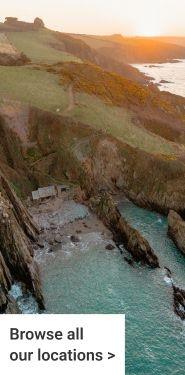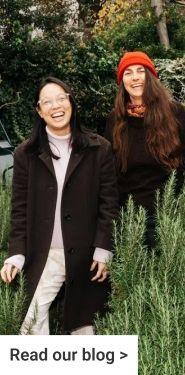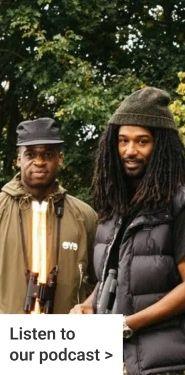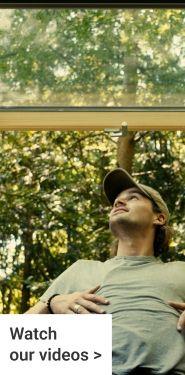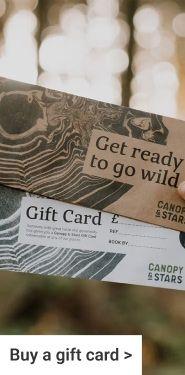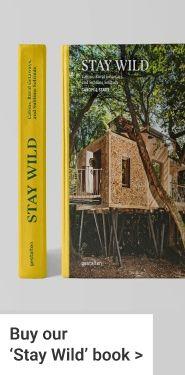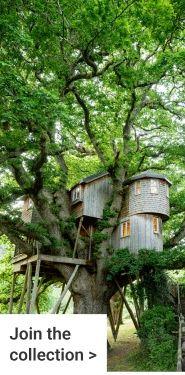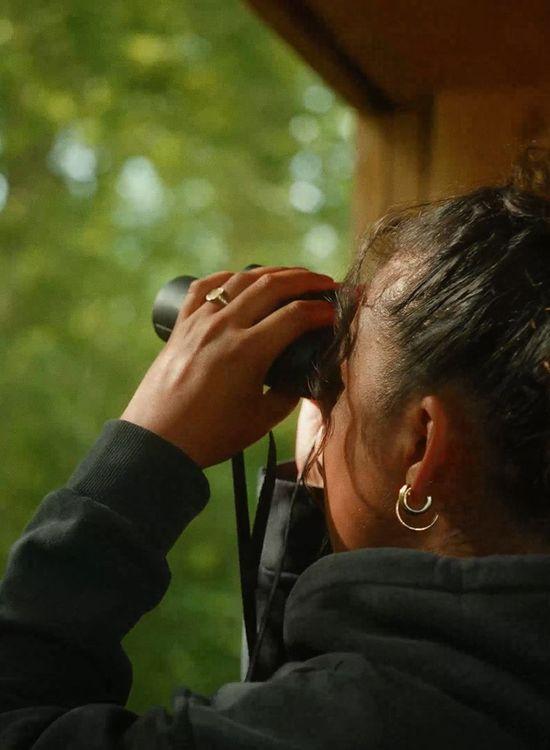
Quick Strolls - access to nature
Welcome to Quick Strolls, shorter walks with guests from A Life More Wild. On our first Quick Stroll, we’re looking at how three of our guests tackled the issue of access to nature. Each of them had felt, personally or professionally, that they were excluded from traditional outdoors culture. Each of them went about changing that in a very different way.
Bangladeshi environmentalist and activist Mya rose Craig, who we spoke to near her Gloucestershire home, became aware of issues around access to nature before she was even in her teens...
Totally unrelated, I decided to run a summer camp for kids, like a weekend camp when I was about 13, and it was just so I could hang out with other kids who were interested in nature for a weekend. And it was super fun. And there were loads of people really interested, but everyone who signed up was like a white middle class teenage boy. And I guess that felt much more personal and much more real in terms of this issue, because it was something that I was organising and something that I was sorting out.
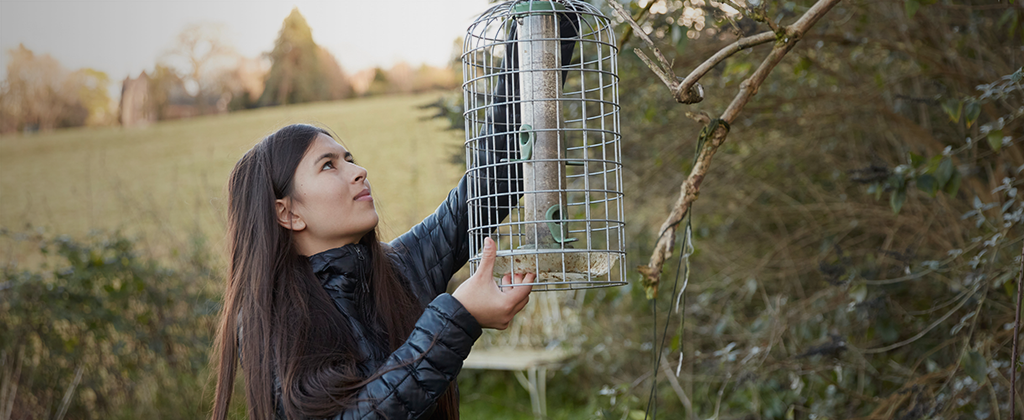
Totally unrelated, I decided to run a summer camp for kids, like a weekend camp when I was about 13, and it was just so I could hang out with other kids who were interested in nature for a weekend. And it was super fun. And there were loads of people really interested, but everyone who signed up was like a white middle class teenage boy. And I guess that felt much more personal and much more real in terms of this issue, because it was something that I was organising and something that I was sorting out.
Conservationist Lira Valencia, who grew up in South London, found similar barriers in her way when she began her career...
Lira: I’d say the one thing, like with the whole, you know, going to university and studying zoology, that's where my impostor syndrome kind of started, because it was the first time I realised that I looked pretty different and sounded pretty different to a lot of people that had interests in conservation. Prior to then, I've obviously lived in London, and I've only been around really mixed communities. So when I went away to Reading to study zoology, it was the first time I really realised, wow, I'm actually Brown and have a really strong South London accent. Then obviously people commented on that, saying, Oh, how come someone like you is into nature? Like, you're from London. It just kind of started. That's where seeds of doubt started coming up and feeling a bit maybe this is not for me. You know, maybe people like me don't do conservation.
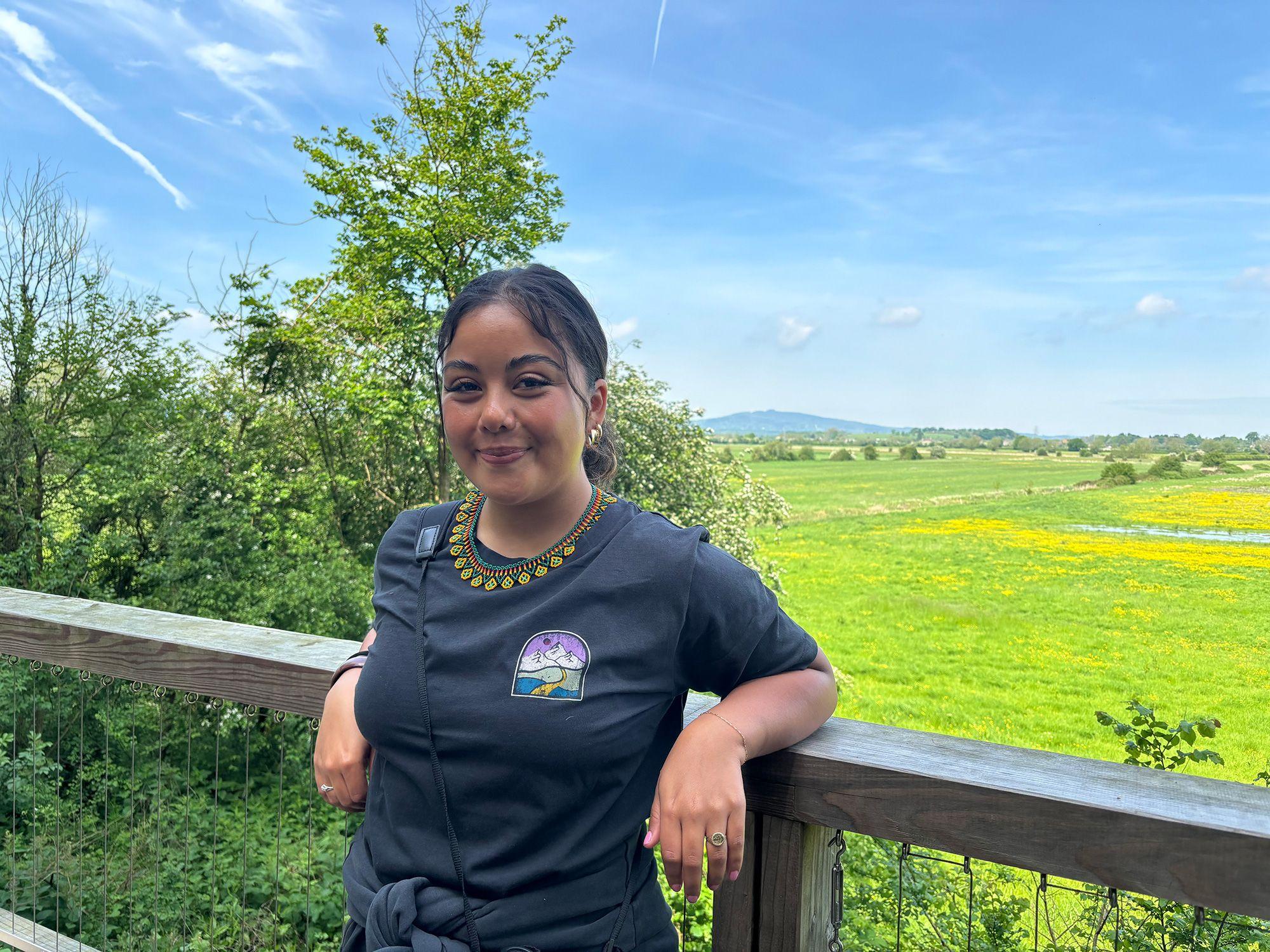
Ollie Olanipekun and Nadeem Pereira, founders of birding and walking group Flock Together, also knew how ingrained discrimination could be...
Ollie: I would say for a lot of people of colour, the outdoors has always been presented as a bit traditional. This has changed over the last few years, hopefully because of Flock’s influence. But before then, it was very much like, you know, the big brands, the marketing campaigns, the TV media, didn't feature or you could barely see faces that looked like ours. But as I said, education, I think if you didn't go to a school which, you know, had the Duke of Edinburgh, or you didn't have parents that would take you on holidays, or you didn’t live in an area where there was an abundance of green space, more factors to why you might not feel comfortable in these sorts of spaces.
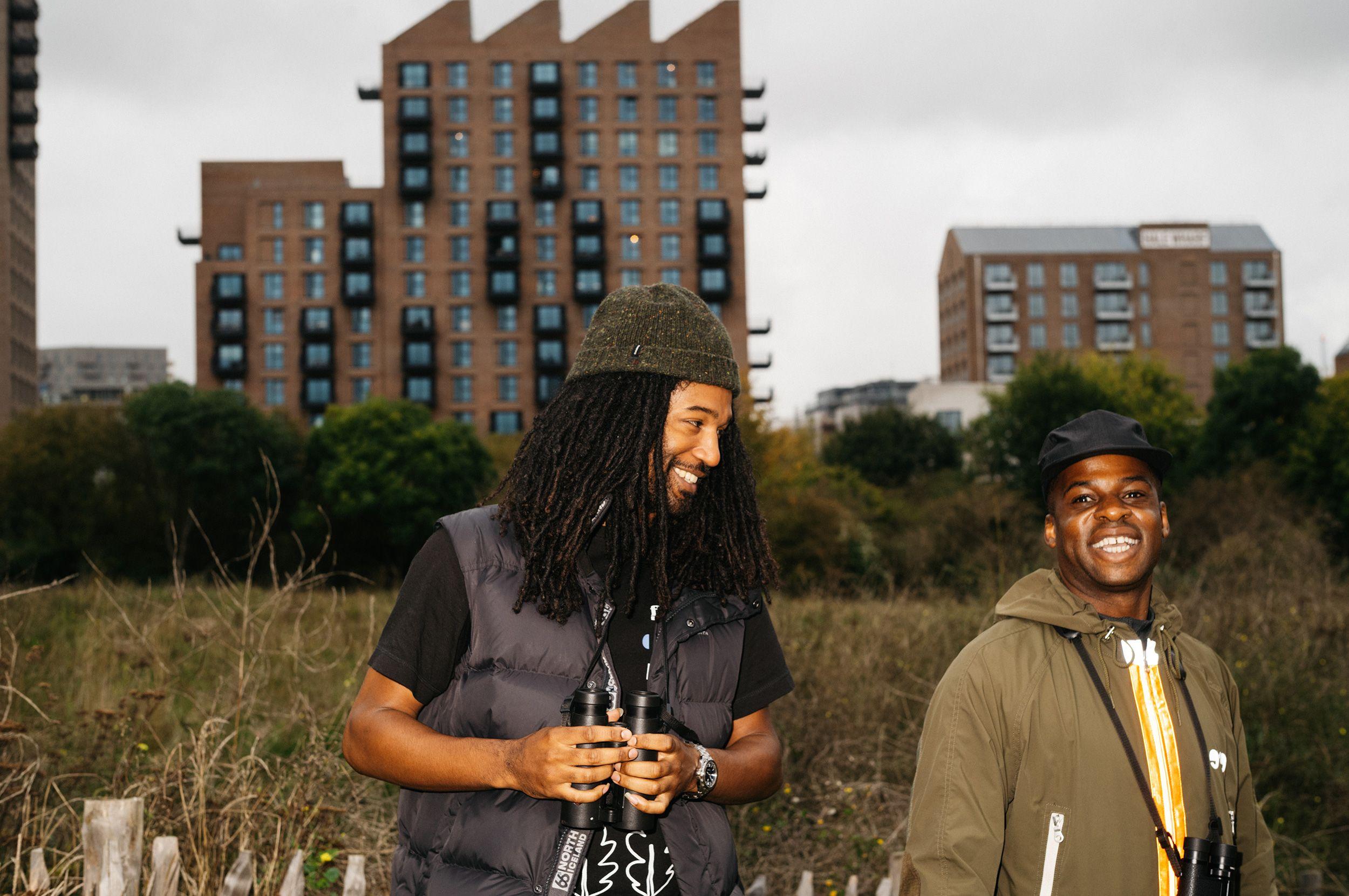
Each of these people was affected by the same issue, but their approaches to tackling it were quite different. Mya rose Craig went straight for the big institutions head on...
Mya: I wrote to lots of big UK nature organisations to ask what they were doing to try and solve this issue, and they weren't really doing anything. Because I think at the time, there was a real sense of entitlement in terms of, there's no segregation. We're not stopping people from coming, so it's not really our business if people aren't coming, which obviously is not quite how things like this work, but I ended up running a conference that next year called Race Equality in Nature that was all about trying to figure out what these issues were and how to solve them. But it was a really important conference because no one had ever just sort of asked people in those communities what they felt the issues were, and they knew. They knew straight away what was going on.
Lira Valencia found support from an organisation dedicated to helping marginalised communities access nature...
Lira: A lot of things got me through to the other side. One of them was doing a traineeship called the Keeping it Wild traineeship with the London Wildlife Trust, which is the charity I work with now. And this traineeship is really good, because they really try to target marginalised communities, communities you don't really see involved in wildlife conservation, so people like myself. In that traineeship, I met so many other people like me, and it made me realise, wow, I'm really not the only person of colour with a South London accent that loves nature. So yeah, during that traineeship, I really met my community and people who made me feel welcome. Those are Egyptian geese we hear in the background, just having a bit of a chatter! So beautiful. That just made me realise, okay, like I do belong in this space, and there's purpose for me.
And Ollie and Nadeem? Well, they built their own community, which they think worked for a single simple reason...
Ollie: We got people interested because we made it sexy. It's that simple. I know that sounds... some people might not really understand what that means, but if you want to make something appealing, then just make it sexy. I think what has happened in the conservation space, bird watching, for so long, it's been presented as this very traditional, typical activity, but me and Nadeem dean always saw it as way more exciting than that. And I guess once we had a platform like Flock Together, we just knew we had to be our most exciting with all of our copy, our comms, our imagery, everything was really about making it as exciting and sexy as possible.
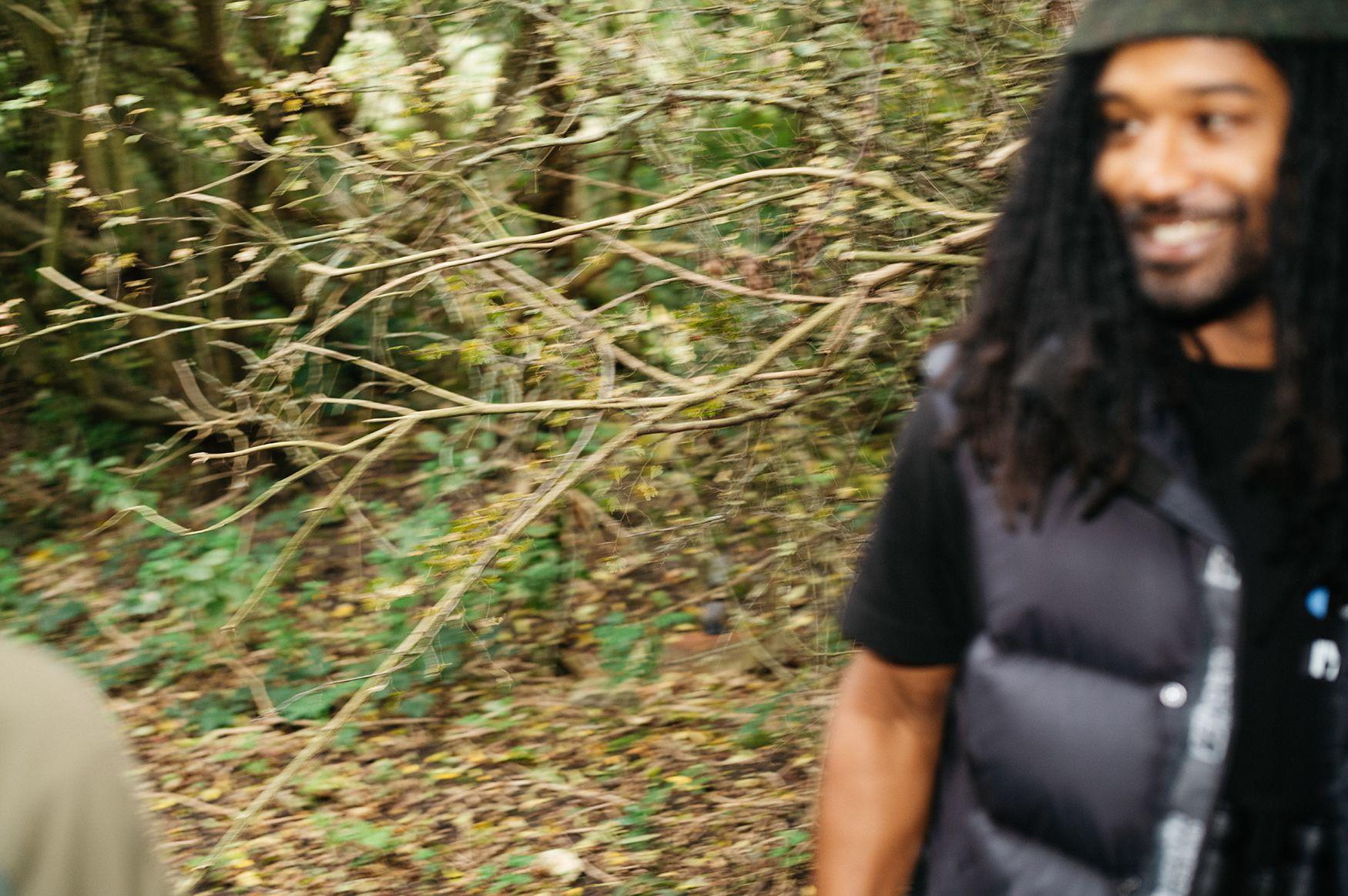
It's not easy to do what we've done, as many of the more established traditional organisations have found. Many look at Flock Together and organisations like us, and think, oh, we'll just take bits and pieces from what they do and do it. But you can't copy authenticity. You simply can't. So I definitely agree. You have to make it sexy. You have to cross-pollinate with culture. But those opportunities to actually do that need to go with people authentically from the culture.
So the landscape is changing, as those three great guests on life more wild showed in their own ways, but there is always more to do. Access to nature is a universal right, and we all need to work in whatever way we can until everyone feels the truth of what Ollie from flock together said, just as we were ending our walk in London...
Ollie: Nature is always there to remind you you belong with it, and it belongs with you. And if you're made to feel any differently, understand that's not nature telling you that that's something else, and you need to actively work against that. Get outside!

